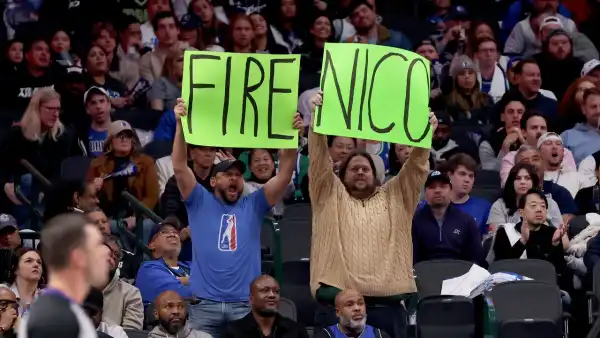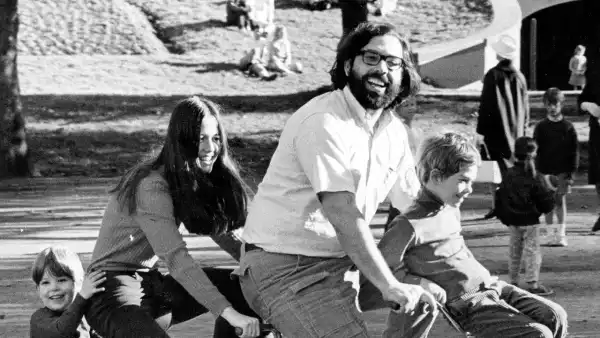
Save this storySave this storySave this storySave this story
For the past two decades or so, cinema’s loss has been television’s gain. As the mid-budget movie, once the natural home of grown-up fare, collapsed, prestige programming ballooned on the small screen. You probably know what happened next: landmark series like “The Sopranos” and “Mad Men” unlocked the potential of serialized storytelling; the streaming wars funded a near-endless supply of shows, including comparatively niche experiments that would never have made it to air in any previous era; four-quadrant epics propped up the monoculture; and television became not just an ascendant medium but an engine that pushed Hollywood in exciting new directions—if anyone could keep up with all those breakthroughs.
The boom couldn’t last. The rise of streaming altered the TV industry’s business model—and its output—in fundamental ways. Last year, when the writers’ strike froze productions across the country, studios took the lull as an opportunity to axe an array of projects, and Netflix, home to true-crime junk and the occasional “gourmet cheeseburger,” has since emerged as the dominant streamer. Now the word around town is that fewer shows are being green-lighted, and Hollywood as a whole is under a cloud of executive risk aversion. For many within the industry, “Survive till ’25” became the mantra.
There’s no doubt these larger trends have seeped into the work. 2024 was an exceptionally weak year for television; until the arrival of a few late, great contenders, I wondered whether I’d have enough entries for a conventional Top Ten list. I did end up making one—as a critic, I can’t help advocating for the shows I love—but the Top Five are, in my view, a significant cut above the rest. The most suspenseful TV storyline of 2025 might not be found on any single show but in the question of where smart, original mass culture will end up if we continue on this trajectory.
10. “Mr. & Mrs. Smith”
Prime
The 2005 movie “Mr. & Mrs. Smith” was powered by a pair of supernovas in Brad Pitt and Angelina Jolie. Donald Glover and Francesca Sloane’s wistfully winsome remake opts for a more human-scale romance—and, in doing so, becomes the rare film-to-TV adaptation that surpasses its source material. Glover and Maya Erskine star as married spies who eventually turn on each other in a dramedy that’s at once visually gorgeous and emotionally grounded, exploring the instant bond that can form between two lonely souls who share a dark wit. For all the protagonists’ jet-setting, there’s an inescapable current of economic anxiety that recalls Glover’s previous series, “Atlanta.” Designer-clad hottie assassins have seldom felt more relatable.
9. “We Are Lady Parts”
Peacock
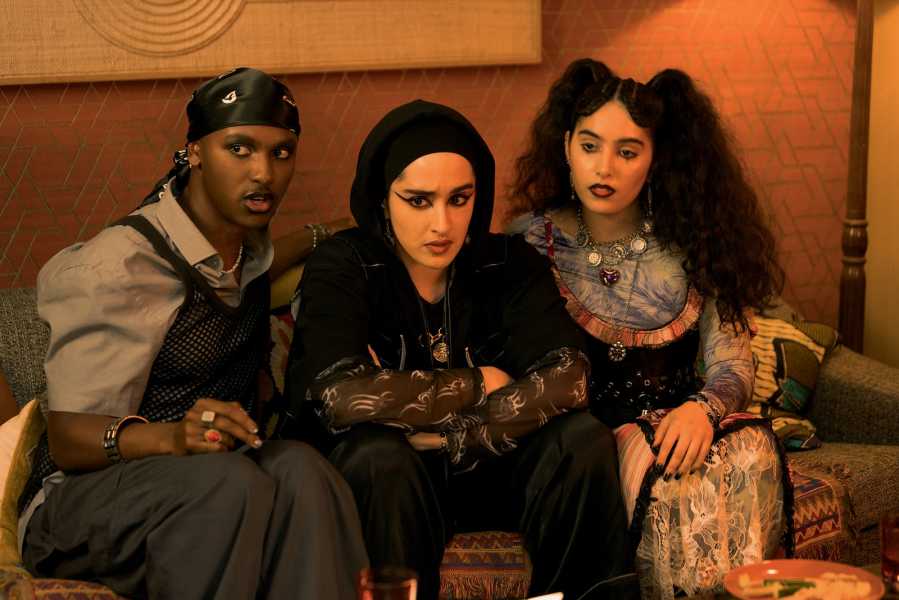
Bradley Banton, Juliette Motamed, and Eman Alali in “We Are Lady Parts.”
Photograph by Saima Khalid / Peacock / NBC International / C4
When the first season of “We Are Lady Parts” débuted, in 2021, it felt like a win for more than one marginalized community: a joyful comedy about the formation of an all-female, all-Muslim punk band in London whose members typified a host of cultures and influences. (Sample track: “Ain’t No One Gonna Honour Kill My Sister But Me.”) The second season is a meditation on the burdens of such representational responsibilities. The eponymous band is barely staying afloat financially, and what little visibility it’s attained thus far brings contradictory pressures: to make more “serious” music, to be more accessible to a general listenership, to issue political statements on behalf of far-off Muslim populations, or, in the case of the group’s queer drummer, to publicly come out. The series’ creator, Nida Manzoor, distills the plight of artistic pioneers without sacrificing her quirky humor or her signature fleetness.
8. “Survivor”
CBS
Nearly a quarter century after Richard Hatch won a million dollars on the first season of “Survivor” by outwitting, outplaying, and outlasting his fellow-competitors, the show remains a cultural phenomenon. It’s perhaps the closest thing to a perfect game that reality television has created—a physical and social contest that, over the years, has developed an aura of wholesome sportsmanship unadulterated by meddling producers. But its evergreen freshness is probably the result of its superb casting and “character” arcs; this year’s crop gave us the near-Shakespearean friendship-breakup between Charlie and Maria, as well as the singular figure of Q, a fascinatingly chaotic player who repeatedly encouraged his tribe-mates to eliminate him, only to be kept around for weeks. Reality TV is often a far better showcase for human weirdness than scripted programming. “Survivor,” now in its forty-seventh season, has never stopped delivering on compelling foibles—or jaw-dropping twists.
7. “Abbott Elementary”
ABC
“Abbott Elementary” ’s perennial straight A’s make it easy to take for granted. But Quinta Brunson’s workplace mockumentary about an underfunded, majority-Black public school in Philadelphia—which already boasted TV’s best comedy ensemble—may be ending 2024 with its strongest season yet. After three years of will-they-won’t-they tension, Brunson’s Janeane and Tyler James Williams’s Gregory have finally decided they will, leaving them free to feel out the less-trodden territory of two awkward nerds in love. A new arc about the slow creep of gentrification has revivified the sitcom, too, by dividing the teachers along unexpected lines. “Abbott” might well be the funniest show on television, and it keeps finding ways to refresh itself.
6. “Hacks”
Max
Few shows are as unabashedly obsessed with female ambition as “Hacks.” The flicker within Jean Smart’s Deborah Vance—an obscenely wealthy but culturally irrelevant Vegas comedian—that tells her she hasn’t done all she can do grows into a conflagration when she meets Hannah Einbinder’s Ava Daniels, a Gen Z comedy writer cancelled for an errant tweet, who rebuilds her own career by reviving Deborah’s. Three years in, each has become dependent on the other, though both are loath to admit it. This season sees Ava struggling to make her narcissistic mentor treat her as an equal—and offers a delectable picture of the kind of ruthlessness necessary to break free.
5. “Somebody Somewhere”
HBO
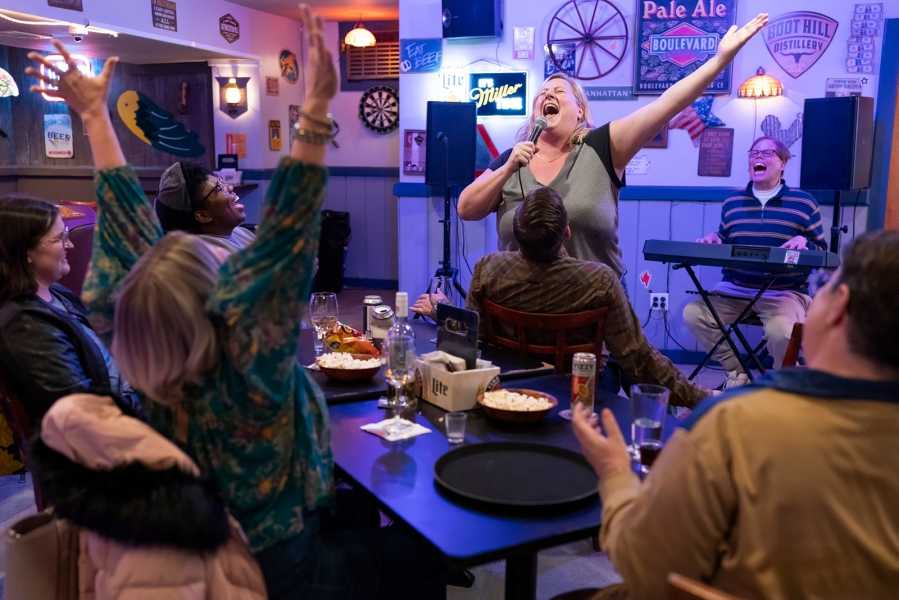
Bridget Everett (with the microphone) and Jeff Hiller (on the keyboard) in “Somebody Somewhere.”
Photograph by Saima Khalid / Peacock / NBC International / C4
“Somebody Somewhere,” Bridget Everett and Jeff Hiller’s tender ode to the transformative potential of midlife friendship, is a long hug of a show, the kind that makes you grateful to feel a sense of human connection down to your bones. The first season found Everett’s grieving Sam discovering a place for herself in her tiny Kansas home town via Hiller’s Joel, who introduced her to its queer pockets. The third—the series’ best and last—has Sam trying to repay the favor by making sure a newly married Joel isn’t sacrificing too much of himself to achieve a happy ending. It’s hard to say goodbye: it’ll be a much colder TV landscape without “Somebody Somewhere” ’s ineffable warmth.
4. “Jerrod Carmichael Reality Show”
HBO
Early in the “Jerrod Carmichael Reality Show,” a masked figure—much-rumored to be Bo Burnham—tells Carmichael, “There’s public, and private, and then there’s masturbatorily public.” Carmichael, who came out of the closet in his 2022 standup special, “Rothaniel,” is clearly gunning for the latter. His new docuseries achieves introspection via exhibitionism, as he chronicles his uneven attempts to be a better friend to his pre-fame buddies and to reconcile with his religious, homophobic mother. It’s an often unflattering self-portrait: Carmichael weaponizes the form against his father, whose history of cheating he discussed poignantly in “Rothaniel,” then admits to cheating, more than once, on his own boyfriend. Carmichael’s relationship with the camera proves even slipperier—but there’s no denying his main-character syndrome is more than justified.
3. “Baby Reindeer”
Netflix
“Baby Reindeer,” Richard Gadd’s memoiristic drama, was an unlikely candidate for one of the buzziest series of the year. Gadd, a Scottish actor and comedian best known until now for his one-man stage shows, plays a version of his younger self in a tragic psychic sojourn that revisits his real-life experiences of stalking, grooming, and sexual assault. It is, of course, still relatively unusual for an adult male victim of such abuse to come forward. But “Baby Reindeer” ’s great strength may be the clarity with which Gadd’s fictionalized persona elucidates his messy, imperfect reactions in the aftermath of each violation. There’s catharsis in being able to explain the otherwise inexplicable.
2. “Say Nothing”
FX
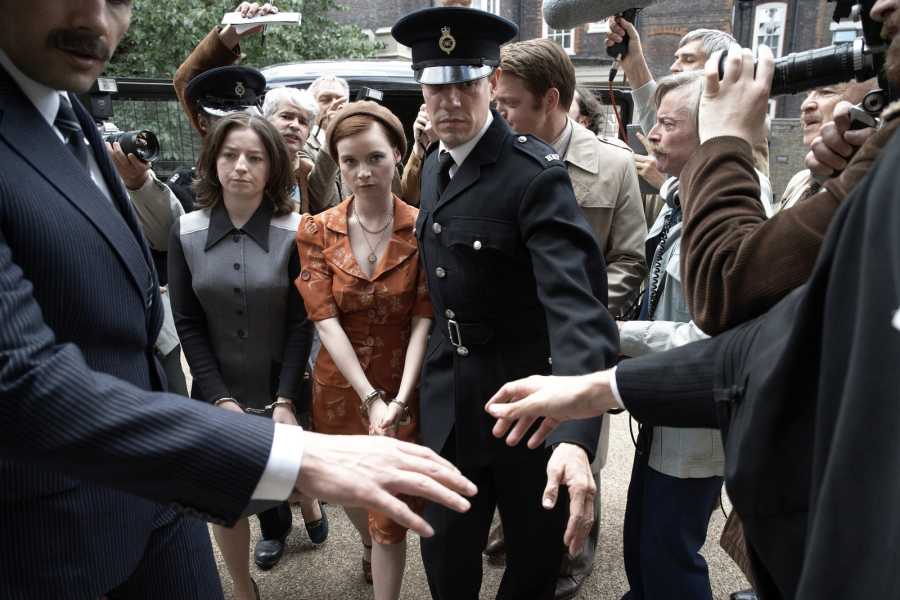
Hazel Doupe and Lola Petticrew in “Say Nothing.”
Photograph by Rob Youngson / FX on Hulu / Everett Collection
An adaptation of my colleague Patrick Radden Keefe’s nonfiction book of the same name, “Say Nothing” spans four decades in the life of Dolours Price, an actual member of the Irish Republican Army. Dolours joined the I.R.A. as a young woman, and eventually masterminded a bombing that injured two hundred Londoners—but, as she muses later in the series, “Age has a way of curbing one’s appetite for frontline revolution.” This disjunct between the romance of political militarism and the latter-day regret thereof is one of “Say Nothing” ’s most striking themes. Following Dolours and her sister Marian, as well as two male I.R.A. leaders who would go on to diverge wildly in their tactics (and in their sense of compassion for the movement’s casualties), the limited series bursts with historical texture and specificity, but never loses sight of the humanity on either side of the ideological divide.
1. “Industry”
HBO
I’ve long been a skeptic of “Industry,” Mickey Down and Konrad Kay’s chilly, jargon-heavy finance soap; for years, I simply could not bring myself to care which of its protagonists, a coterie of recent college grads recruited by a hoity-toity London investment bank, got a twenty-five-thousand-pound bonus as opposed to a fifty-thousand-pound one. But, like so many series before it, “Industry” has realized its full potential with its third season: the young bankers at its core are still pretty young, but their lives are already in breathtaking disarray, and most of them are broke, out of the job, or both, lending the story more visceral stakes. Their arcs are fantastically unpredictable, the show’s ongoing critique of the British class system has never been sharper, and its latest satirical target—the hypocrisy of “socially aware” investing—is downright inspired. I can’t wait to see the characters fall further. ♦
Sourse: newyorker.com
